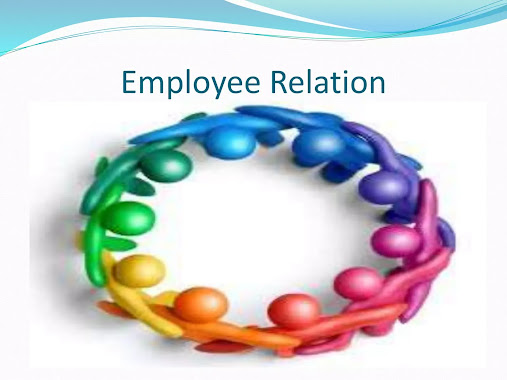Non Financial Rewards for Employees
What are Non-Financial Incentives?
Non-financial incentives are intangible rewards that do not involve cash, such as flexible work hours, recognition and appreciation, career advancement opportunities, training and development programs, a positive work environment, and work-life balance.
Non-financial incentives are becoming increasingly important in modern workplaces because they boost employee motivation, engagement, job satisfaction, loyalty, commitment, and productivity. This is achieved through rewards such as flexible work hours, recognition and appreciation, training and development programs, work-life balance, etc.Anshuman Singh (2024)
What is the role of non-monetary incentives in motivating employees
Non-monetary incentives are key for motivating employees and enhancing job satisfaction. While some employees may prefer being financially compensated, others appreciate rewards relating to their wellbeing, goals or interests.
Financial incentives are ultimately a one-size-fits-all approach, while non-monetary rewards can be tailored to individual preferences.
Options include flexible work schedules, financial support, childcare support, additional annual leave and more. This reinforces a sense of appreciation for the workforce, as well as boosts employee self-esteem and morale. Opportunities for skill development and career advancement also demonstrate an organisation's commitment to employee growth. This, in turn, can foster a sense of loyalty amongst the team, as they feel that they are being fully-invested in on a personal and professional level.
Best non-financial rewards to motivate employees
- Flexible Work Arrangements: Providing options such as remote work, flexible hours, compressed workweeks, or part-time schedules can help employees better manage their work-life balance and personal responsibilities.
- Professional Development Opportunities: Offering access to training programs, workshops, seminars, and educational resources allows employees to enhance their skills, knowledge, and career growth within the organization.
- Career Advancement Opportunities: Providing clear pathways for career advancement, promotion, and internal mobility enables employees to progress in their careers and pursue new challenges and opportunities within the organization.
- Recognition and Appreciation: Recognizing employees' contributions, achievements, and milestones through verbal praise, awards, certificates, or public acknowledgments fosters a culture of appreciation and motivation.
- Health and Wellness Programs: Implementing wellness initiatives such as gym memberships, health screenings, stress management workshops, mental health resources, and wellness challenges promotes employees' physical and mental well-being.
- Workplace Flexibility: Creating a supportive and inclusive workplace culture where employees feel valued, respected, and empowered to voice their opinions, ideas, and concerns contributes to a positive work environment.
- Work-Life Balance Support: Offering benefits such as parental leave, paid time off, sabbaticals, and family-friendly policies helps employees balance their work commitments with personal and family responsibilities.
- Employee Assistance Programs (EAPs): Providing access to counseling, mental health support, financial planning services, and other resources through EAPs helps employees address personal and work-related challenges.
- Community Engagement and Volunteer Opportunities: Encouraging employees to participate in community service activities, volunteer programs, and charitable initiatives fosters a sense of purpose, fulfilment, and social responsibility.
- Workplace Amenities and Perks: Offering amenities such as on-site childcare facilities, recreational areas, wellness rooms, subsidised meals, and commuter benefits enhances employees' overall experience and satisfaction at work.
- Flexible Benefits Packages: Tailoring benefits packages to meet diverse employee needs and preferences, such as offering a choice of health insurance plans, retirement savings options, and other voluntary benefits.
- Supportive Leadership and Management: Providing ongoing support, feedback, coaching, and mentorship from supervisors and leaders helps employees feel valued, motivated, and engaged in their work.

- 1.Alignment: Ensure that non-monetary rewards align with organizational goals and values.
2.Understanding Preferences: Take the time to understand what motivates employees by gathering insights into their preferences.
3.Variety and Choice Provide a range of non-monetary rewards to cater to diverse employee interests and preferences.
4.Timely and Personalized Recognition: Recognize and reward employees promptly and personally for their achievements.
5.Visibility: Publicly acknowledge and celebrate employees' accomplishments to inspire others and reinforce desired behaviors.
6.Growth and Development: Offer rewards that support employees' professional and personal growth, such as training programs and mentorship opportunities.
7.Fairness and Transparency: Establish clear criteria and guidelines for earning rewards to ensure fairness and transparency.
8.Peer-to-Peer Recognition: Foster a culture of peer-to-peer recognition where employees can appreciate each other's contributions.
9.Feedback and Communication: Provide regular feedback and communication about the rewards program to keep employees informed and engaged.
10.Integration with Performance Management: Link non-monetary rewards to performance management processes to reinforce desired behaviors and outcomes.
11. Recognize employees: milestones and achievements to show appreciation for their dedication and loyalty.
12.Evaluation and Adaptation: Regularly evaluate the effectiveness of the rewards program and make adjustments as needed based on feedback and outcomes.
Conclusion
Non financial rewards play a vital role in shaping the culture, motivation, and overall success of a company. By recognise and acknowledging employees' contributions beyond monetary compensation, organisations can foster a positive work environment where employees feel valued, motivated, and engaged.Furthermore, non-financial rewards can align employees with the organisation's goals and values, promote collaboration and teamwork, and ultimately drive innovation and business success.By implementing best practices for non-financial rewards, organisations can create a workplace where employees feel appreciated, motivated, and empowered to perform at their best, leading to improved organisational performance and competitive advantage in the long term
Reference



.webp)
Recognizing effort and achievements, fostering a supportive work culture, and providing opportunities for growth are invaluable non-financial rewards for employees.
ReplyDelete